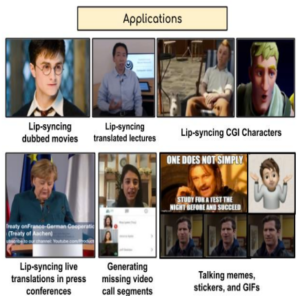ADHD and School: One SPASH student’s story
December 4, 2017
By EMILY SEPPELT
The Mirror reporter
By now, you have probably met someone who has ADHD. However, it may be more common than you ever thought. After becoming good friends with Katie Hauer, who has ADHD herself, I wanted to delve deeper into her life with ADHD while also learning about ADHD itself. We decided to sit down over hot cocoa to talk about her life since being diagnosed with ADHD, and what it is like to adjust to the way her brain works.
Now, what really is ADHD?
According to the ADHD Center in Chicago, ADHD stands for Attention Deficit Hyperactivity Disorder. There are three main presentations of ADHD. The first is when a person struggles with inattention, while the other is when a person struggles more with hyperactivity. The third is a combination of both of these.
Hauer said, “I have the combined type. It makes the most sense for me. As a child, I was very hyperactive, and I do get hyper at times, but mostly I struggle with inattention.”
Katie has been dealing with the struggles of ADHD almost her entire life. Many children with ADHD have a trouble with social skills and mood control. “I didn’t have very many friends when I was in elementary school. I think partly because the other kids thought I was really weird.”
Hauer added, “I would throw temper tantrums later than most kids would; I remember having one in the third grade because something didn’t go my way in school. I was throwing things across the room when I was nine years old.”
However, she was not diagnosed with ADHD until several years later, when she was 15. Hauer said she believes she was overlooked because of her ability to keep up with school. Hauer said, “I really enjoyed school, I was always kind of antsy, but because I was so into it, I was able to get through elementary school fine because I really liked learning.”
Once she got to high school, Katie’s ADHD really started to affect her. But she didn’t even know she had it. She could no longer rely on pure intelligence to get her through school. She started to panic and was unable to attend school many days. Her grades started to slip. She didn’t know what to do. “I didn’t even know how to deal with life anymore because I had missed so much school. People kept telling me what to do. I was telling everyone that nothing was helping me; I did not know what was wrong with me. I could not get out of bed some days. I was just in a bad place mentally. A lot of that year is blurry in my mind because it was just so chaotic.”
When she was able to make it school, she had a hard time focusing and paying attention to lectures. Some teachers were not very understanding of her struggles. Katie said one specific teacher gave her some issues. “There was one teacher in 10th grade that really was not understanding of what I was dealing with. My mom tried to talk to him, but he insisted that I should be able to do the work on my own and that I shouldn’t need any help keeping up.”
I knew Katie for a year and a half before she was diagnosed, and I wondered how everyone had gone so long without seeing any of the signs. If you were to ask any of her friends, they would have agreed that she displayed many of the symptoms. Finally, when she was struggling through a class in 10th grade, one teacher saw her stress and decided to contact the counselor’s office. Hauer said, “I was taking a test, and I could just not focus. I was feeling anxious and I started to panic. I ended up turning my test in with only half the answers filled in. I went and hid in the bathroom and cried because I was feeling so bad. They notified the counselor’s office and I was called down the next hour, which started the ball rolling on getting help for me.”
When she finally was diagnosed, her mom found it to be humorous. Hauer said, “Once she heard the symptoms, my mom was actually laughing in the doctor’s office because all of the symptoms fit me so well.”
But what did Katie really struggle with? What are the symptoms of ADHD? How does ADHD affect her life?
“It affects my school so much. It is a part of who I am, so whatever I am doing it’s affecting. My brain is actually different from the average student’s brain,” Hauer reported.
Hauer said, “One of my biggest struggles is time management. I have issues getting places on time, oversleeping. I will somehow convince myself that I can do something that takes 45 minutes in 20 minutes. The concept of time really eludes me.”
Having trouble with time can affect school as well. Hauer said, “I have issues with getting homework done on time, and breaking up large projects is also a big thing.”
Another symptom of ADHD is disorganization, and not just literal physical organization either. Hauer said, “I have trouble organizing my thoughts because I often get so distracted. It is annoying when I cannot compile my thoughts enough to do my homework. I might have a good idea but I have issues bringing it to life. It affects my ability to focus in lectures; I have issues with note taking as well.”
And even though Katie got past large social issues when she was in elementary school, social skills can sometimes still affect her. Hauer said, “Sometimes I have trouble talking to people because I end up not being able to focus on what they are saying, or I keep forgetting what they’re saying. I will interrupt people if I get excited about something going on in my brain. I’ll completely forget that they were even talking to me about something else.”
One other symptom that can affect both her relationships and her schoolwork is hyper-focusing. Many people diagnosed with ADHD also tend to hyper-focus, which is being stuck on a task and being unable to switch your attention over to something else. They zoom in on one thing, possibly a project, something on the internet, or a book. Katie said, “Sometimes I’ll get really obsessive about one topic for a while and I’ll just spam my friends. Sometimes I will neglect my self-care because I am so invested in one thing that I am doing. It makes it difficult to switch from one topic to the other or on assignment to the other.”
When asked about what bothers her most about her ADHD, Katie said it was her difficulty with short-term memory. Because her brain is so often all over the place, Katie often forgets things because she never processed them the first time. Hauer said, “Sometimes I have to have information repeated to me several times before it will stick. Sometimes I will not remember entire conversations that I have had with my friends and they have to remind me that I already told them this.”
After Katie was diagnosed with ADHD, the counselor’s office helped her to adjust to school in a way that benefitted her. She received something called a 504 plan, which is a way for students with situations that may hinder their ability to stay caught up in class to get the help that they need. Each person’s plan is individualized to his or her needs. The person’s need may be intensive, or just a few things to help them. So students with ADHD can get help, no matter how much they need. Hauer said, “It can manifest in different ways. The symptoms can be severe or not as severe and it can be different for everyone.”
The counseling office helped Katie immensely. Hauer reported that “I really appreciate the counselors, because they’ll allow you to do the things you need to. If you need arrange your schedule to fit your needs, they can help you with that.”
One thing that Katie was able to change was her schedule. Hauer said, “Being able to control things kind of eases anxiety for me. I set up my schedule to allow me to have many breaks between easy and more difficult classes. I need that time to let my brain relax after so much stimuli.”
Katie said that she also is able to have extra time for testing, an alternative place to take tests to mute out distractions, and the ability to turn in assignments late if she is struggling.
Since getting her 504 plan and getting medication to help her brain, Katie says she has been doing much better. Hauer said, “This past year I think I have really been finally becoming myself and really enjoying life again. I have been working on trying to learn skills to help organize my life more.”
The next thing that Katie and I talked about was advice that she had for other people with ADHD or any issues really, that may help them deal with it. Hauer said, “I don’t even know where to start. I would say that learning is the number one thing. Learning about my brain, how it works, what I do differently than others, was big. Connecting with others has been so great, because talking with other people who understand helps, you don’t feel so judged. It also helped me to start trying new strategies to help cope with my symptoms.”
Another thing that Katie recommends was connecting with teachers, counselors, mentors, and parents to get help. Hauer said, “Trying to talk to your teachers would be a good thing. Just meeting with them or shooting a quick email is enough. In my experience, most are very accommodating of your needs. Even if it’s something other than ADHD, I’ve found that if something is just going on in your life they will understand.”
Katie said, “It would have been nice to have been diagnosed earlier because I probably could have gotten more help and advice for my issues. It is not as well-known that kids can have ADHD and aren’t as hyperactive. The kids who don’t have very many behavioral problems, or get good grades or even just kids who tend to be quieter are often overlooked.”
One last point that Katie wanted to make sure she told me about was the stigmas that she wants erased surrounding ADHD, and what she really wants people to take away from reading her story. She said, “I want to erase the stigma that ADHD is just an excuse for bad behavior. Some people will even judge parents for getting ADHD medication for their children. It really is an actual difference in your brain. It is not a failed version of normal; it is just the way that my brain is set up.”
Many people see people with ADHD as just lazy, not willing to pay attention, be on time, or do their work. That is not true. People with ADHD often have to work twice as hard to do some of the things that come naturally to neurotypical people. Hauer added, “I’m not just using my ADHD as an excuse. I actually have struggles, and I work hard.”
Katie’s last piece of advice was for friends, family members, and teachers of students with ADHD. She stressed the importance of being empathetic to their issues and trying to help them as much as you can. Hauer said, “If you know someone who has it, try to be understanding, if they show up late to something, try to not hassle them about it. They probably feel bad about it already. Many people with ADHD are very hard on themselves. Just helping us and pointing out things that we could work on is helpful.”



































































